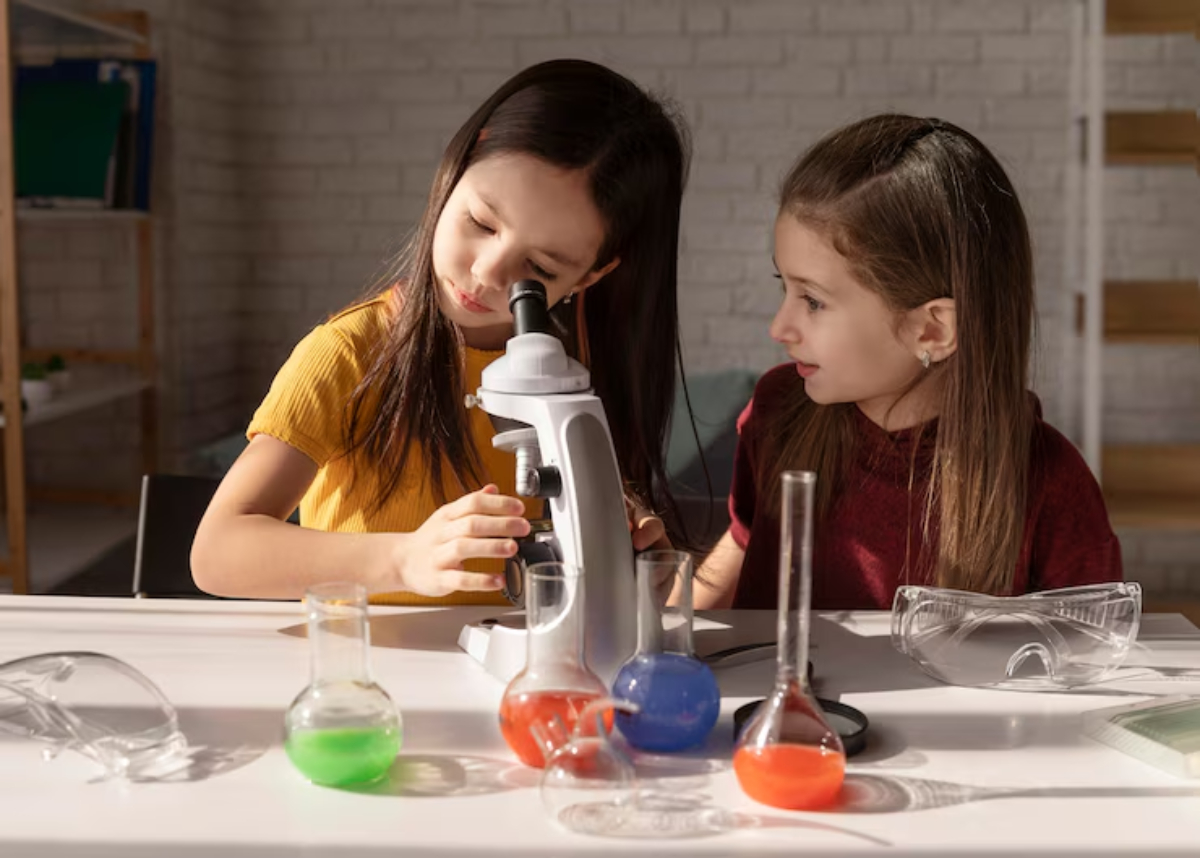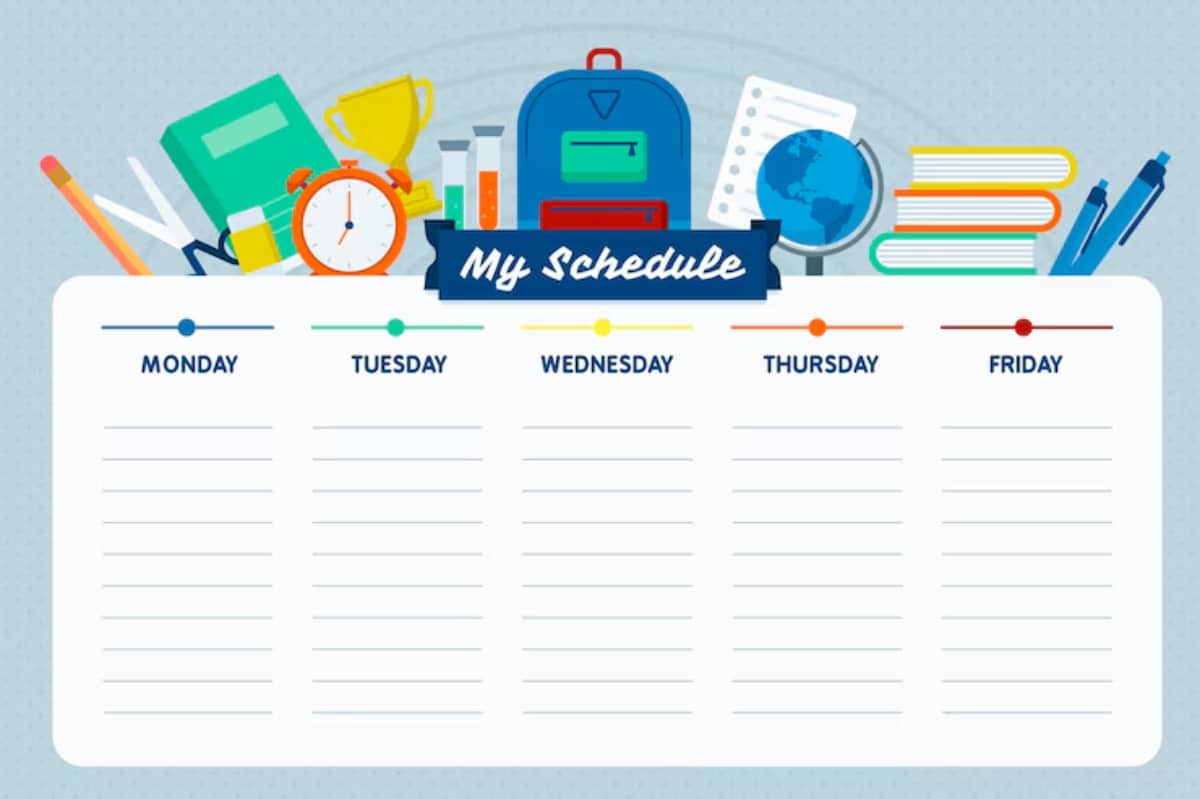
Top Science Curricula for Homeschool Families
Science is one of those subjects that sparks curiosity if taught the right way. Whether your child loves messy experiments, watching things grow, or understanding how the world works, the right homeschool science curriculum can make all the difference.
This guide highlights some of the most reliable, engaging, and hands-on science homeschool kits and STEM homeschool resources available for families in 2025. You’ll find options for different age groups, learning styles, and teaching preferences — from structured programs to creative kits that bring science to life.

Why Choosing the Right Science Curriculum Matters
Unlike subjects that rely primarily on textbooks, science is all about discovery. The best homeschool science programs make room for:
- Experiments that let kids test ideas
- Real-world connections that keep topics interesting
- Visuals and demonstrations to explain more complex concepts
- Flexible formats for busy families or different learning needs
Your child doesn’t need to become a future scientist, but they should understand how science shapes their world.
For more information, read our blog on: Best Homeschool Math Curricula for 2025

What to Consider Before Picking a Science Curriculum
Here are a few questions to help narrow your search:
1. How involved do you want to be?
Some curricula are open-and-go, while others require you to guide lessons or prep experiments.
2. What format works best?
Do you prefer digital lessons, physical books, lab kits, or a combination?
3. What’s your child’s learning style?
Are they visual, hands-on, independent, or need lots of direction?
4. What’s your budget?
Some kits include everything in the box. Others need extra materials from home or the shop.

Best Homeschool Science Curricula for 2025
Let’s explore top options for science at home — from full-year programs to flexible resources.
REAL Science Odyssey (by Pandia Press)
Best for: Grades K–8
Format: Print + hands-on activities
Focus: Life science, earth science, chemistry, and physics
REAL Science Odyssey is known for being easy to teach and fun to follow. Each book is designed for one year and blends clear explanations with simple labs you can do at home.
Highlights:
- Step-by-step instructions for parents
- Good mix of reading and doing
- Secular and science-based
- Lab sheets and vocabulary are built-in
Tip: Some materials must be purchased separately, but most are household items.
2. Apologia Science
Best for: Grades 1–12 (Christian families)
Format: Print + optional video components
Focus: Creation-based science with strong academic content
Apologia offers faith-based, academically rigorous programmes. Textbooks are written directly to the student; you can add audio or video lessons if needed.
Pros:
- Self-guided with a clear structure
- Includes lab work and notebooking
- Great for independent learners
- Detailed and rich in content
Note: A Strong Christian worldview may not suit all families.
3. Building Foundations of Scientific Understanding (BFSU)
Best for: Grades K–8
Format: Teacher-led with open-ended activities
Focus: Logical progression of scientific thinking
BFSU is known for its profound, layered teaching. Rather than separate subjects like biology or physics, it integrates them with real-life reasoning and critical thinking.
Strengths:
- Encourages big-picture thinking
- Low-cost, book-based approach
- Hands-on ideas and questions for discussion
- Grows with the student
Consider: It’s less scripted and requires prep from the parent.
4. Nancy Larson Science
Best for: Grades K–5
Format: Print + physical kits
Focus: Human body, life science, earth science
Nancy Larson’s program is all-in-one. You receive everything — from the teacher’s manual to student booklets and lab materials — making it easy to start without extra shopping.
Benefits:
- Clear lesson guides
- Comes with all the needed supplies
- Easy for new homeschoolers
- Emphasises vocabulary and comprehension
Drawback: More traditional, less exploratory or experiment-heavy.
5. The Good and The Beautiful Science Units
Best for: Grades K–8
Format: PDF or print + optional science kits
Focus: Nature studies, space, weather, ecosystems
This programme gently combines reading, short lessons, and activities. Units include mini books, art, writing, and hands-on learning.
Highlights:
- Beautiful visuals
- Affordable and family-style
- Easy to customise
- Christian values are presented lightly
Tip: You can choose units based on your child’s interest.
6. Supercharged Science
Best for: Grades K–12
Format: Online + downloadable lessons
Focus: Real-world experiments and STEM topics
Created by a NASA scientist, Supercharged Science focuses on doing rather than just reading. With hundreds of experiments, video lessons, and project ideas, it’s an excellent tool for curious learners.
Why parents like it:
- Kids love the experiments
- Covers physics, robotics, biology, and chemistry
- Supports both beginners and advanced students
- Easy to adjust per grade level
Note: Internet access is needed for most parts.
7. Thames & Kosmos Science Kits
Best for: Supplementing any grade
Format: Physical kits
Focus: Chemistry, physics, engineering, and more
While not complete curricula, these science homeschool kits are ideal for weekend projects or reinforcing what your child is learning. The kits are well-made and explain scientific principles through fun builds and activities.
Popular kits include:
- Chemistry C500
- Physics Pro
- Kids First Biology Lab
- Solar Power Workshop
Great for: Adding hands-on fun or boosting a textbook-heavy programme.
Bonus Picks: STEM Homeschool Resources
Want to go beyond the basics? These tools add extra value to your science curriculum:
- KiwiCo Crates: Monthly subscription boxes that deliver STEM activities by age group.
- Mystery Science: Short online lessons with easy-to-follow experiments (ideal for grades K–5).
- Brainpop Science: Animated videos and quizzes — suitable for visual learners.
Sample Science Schedule (Flexible and Fun)
Here’s how you might structure your science week:
Monday: Read lesson / watch video
Tuesday: Experiment or observation
Wednesday: Write or draw what you learned
Thursday: STEM project or outdoor exploration
Friday: Recap or science game
Keep it light and flexible — some weeks your child may want to dive deep, others might just need a simple nature walk or video.
For more information, read: Top History and Social Studies Homeschool Picks
Making Science Exciting at Home
You don’t need to be a scientist to teach science well. With the right resources, you can make it fun, meaningful, and memorable. Whether you choose a full homeschool science curriculum or mix in STEM homeschool resources, the key is to keep curiosity alive.
Let your child explore. Ask questions together. Try something new — even if it’s a little messy. That’s where real learning happens.


